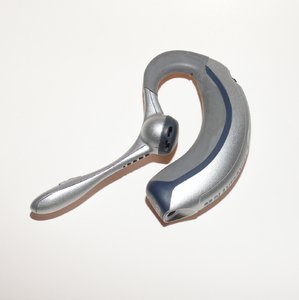The National Transportation Safety Board (NTSB) is looking to stop drivers in all states from using a cell phone behind the wheel, except for during emergencies, according to the Boston Globe. In Massachusetts, drivers under the age of 18, bus drivers and city workers are already prohibited from texting and using the Internet while driving. Now the NTSB is looking to ban all cell phone use for all drivers, saying that too many car accidents in Massachusetts and elsewhere are caused by distracted drivers, even if they’re using a hands-free device. The proposal doesn’t add up to some people as it comes on the heels of a newly released study from the journal Epidemiology that concluded that talking on a hands-free device while driving may not be as dangerous as some suggest.

“More than 3,000 people lost their lives last year in distraction-related accidents,” said NTSB chairwoman Deborah Hersman. “It is time for all of us to stand up for safety by turning off electronic devices when driving.”
Our Boston car accident attorneys understand that the effects of distracted driving have been a hot topic of debate in recent years. Richard Young, an author of the Epidemiology study, says he’s sure that texting and making phone calls at the wheel is dangerous, but hands-free phone calls may not be any riskier than having a conversation with a passenger in the car. And we know the government can’t really ban talking to a passenger. The study suggests that the government needs to take a close look at what’s actually dangerous behind the wheel and go after those habits.
Young’s studies of accident data concluded that drivers who use cell phones are four times more likely to get into an accident, but the equation getting to that conclusion was flawed.
Researchers used cell phone records to look into the usage before an accident and then compared it with cell phone use at the same time on the day before the accident to determine whether or not usage was less when they were driving and lowered their risks for a crash. What other researchers failed to acknowledge is these drivers who were behind the wheel during the same time period on the previous day. Using GPS data, Young determine that about 25 percent of the time, they weren’t.
This, according to Young, completely accounted for that extra risk everyone’s always talking about.
More recent studies used cameras installed into vehicles to look at the effects of distracted driving. These cameras helped to accurately record cell phone use. These studies found that there was no increase in risk from drivers who used hands-free phones though, says Young. Young says his discovery could explain the discrepancy.
He admits though, he’s done some brain-imaging studies and agrees that using a hand-held cell phone can be a little bit distracting and slows a driver’s reactions slightly, but he says that people don’t change lanes as much and they place more focus on the road when they’re talking to accommodate for the extra task.
Jeffrey Glassman Injury Lawyers LLC is an experienced and dedicated team of distraction-related car accident lawyers. We offer free consultations to injured victims and victims’ families who have been involved in Massachusetts traffic accidents. Call (617) 777-7777 for a free and confidential appointment to speak to someone about your claim today.
Additional Resources:
Government calls for total ban on cellphone use while driving, but what are real risks?, by Deborah Kotz, Boston Globe, December 13, 2011
More Blog Entries:
Distraction-Related Car Accidents in Massachusetts and Elsewhere Increase over Last Year, Boston Car Accident Lawyer Blog, December 14, 2011
NHTSA Releases New Data: Fatal Car Accidents in Massachusetts Still High, Boston Car Accident Lawyer Blog, December 12, 2011
 Boston Personal Injury Attorney Blog
Boston Personal Injury Attorney Blog

